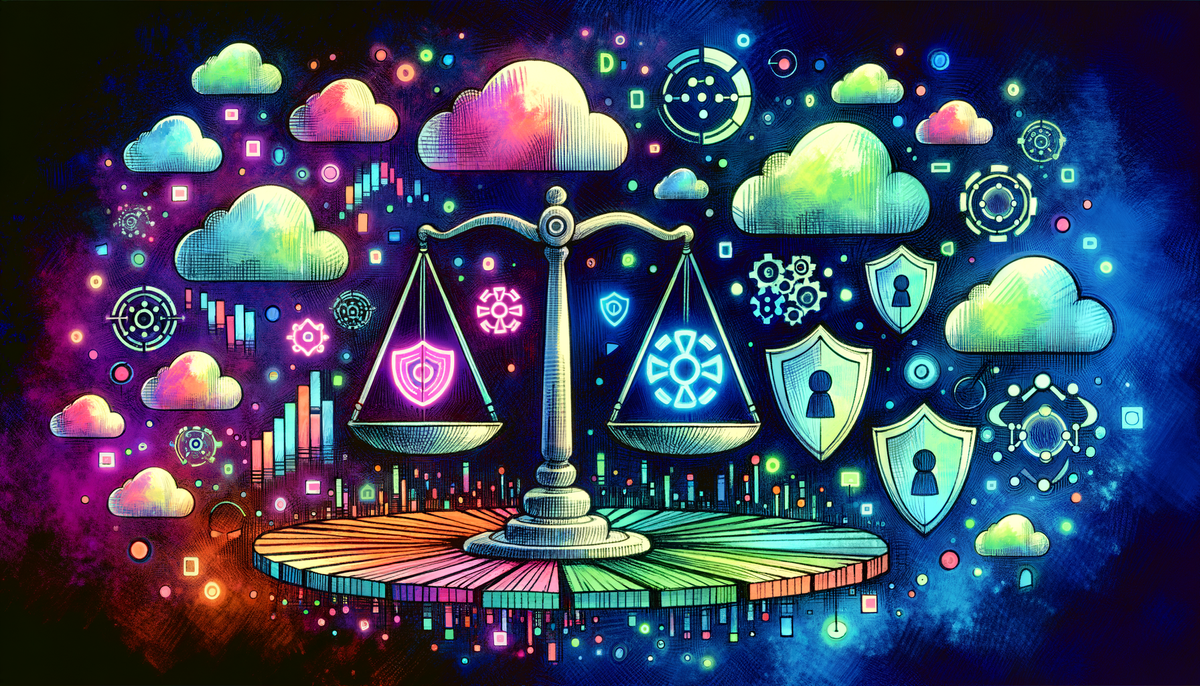AI Updates: Transforming Brain Conditions, Business, and Creativity

The world of Artificial Intelligence (AI) is rapidly evolving, challenging our preconceived notions about technology's role in various domains, from healthcare and education to gaming and business. As AI reshapes industries and elevates human capabilities, it also raises ethical and practical questions about its integration into our daily lives. Join me as we explore these fascinating developments, the opinions of leading figures, and the potential impact on society's future.
AI's Role in Brain Health: Challenging the Status Quo
Artificial Intelligence is revolutionizing the healthcare sector, particularly in challenging existing assumptions about "lifelong" brain conditions. A fascinating article from Psychology Today highlights how AI could transform what we know about conditions like dyslexia by offering innovative intervention methods.
With AI-driven tools, there's a potential to provide personalized education and promote better learning outcomes for children struggling with dyslexia. Such breakthroughs indicate that what we considered as permanent constraints could be mitigated or even overcome with the right technological approach. It echoes Sherry Turkle's sentiment that "AI is a reflection of the human mind—both its brilliance and its flaws," suggesting that while AI can amplify human innovation, it also mirrors our limitations in understanding complex neurological conditions.
The Siri Saga: Embarrassment at Apple
Apple's journey with AI, particularly with its virtual assistant Siri, has been rocky. In an almost cinematic twist covered by Gizmodo, the tech giant over-promised on AI capabilities only to fall short, affecting both internal morale and public perception. Apple had hinted at groundbreaking features that were meant to launch by June, a move that would have bolstered sales for the iPhone 16. However, technical delays hung the company's reputation in limbo. As Tim Cook put it, "The real question is, how are we going to harness that power for good?"
Interestingly, this situation places Apple in a similar position to Amazon's Alexa, which is also grappling with keeping pace with AI's potential versus its practical application. It underscores the growing realization that while AI holds promise, the journey from lab to lifestyle has its share of bumps.
Mark Cuban's Vision: AI or Bust
Entrepreneur Mark Cuban, as reported by CNBC, foresees a future where companies either excel at AI or face obsolescence. Drawing on his own experience from selling software during the dot-com boom, Cuban argues that adaptation is key. His initiatives to enhance AI literacy, especially among underserved youth, signal a proactive step to bridge the knowledge gap in today's workforce.
In a nod to platforms like TikTok that utilize AI to maintain user engagement, Cuban encourages young entrepreneurs to seize opportunities presented by AI, predicting that those who embrace technological shifts will dominate future markets. It’s a clear call to action: join the wave, or risk being washed away.
Art Versus AI: The Voice Behind Aloy's Struggle
The insertion of AI into creative fields isn't without controversy. As VICE and Eurogamer report, Ashly Burch, the voice actress for 'Aloy' from the Horizon game series, has critiqued Sony’s AI rendition of her character. Burch underscores the necessity of preserving human artistry within AI-enhanced domains, lamenting the risk of losing the “soulful craft” of performers.
Her concerns reflect broader industry apprehensions, with organizations like SAG-AFTRA advocating for actor rights amidst AI's encroachment. As AI begins to mimic human creativity, the tension between maintaining artistic integrity and leveraging technology for innovation has become a major talking point in entertainment circles.
AI in the Everyday: Embracing ChatGPT
A report by Bloomberg suggests a growing acceptance of AI in daily life, led by tools like ChatGPT. Despite a premium subscription cost, technologies such as this are being adopted by individuals seeking to streamline tasks and stimulate creativity.
The willingness to invest in AI services speaks volumes about their perceived value, despite associated challenges. It gives credence to the notion posited by various experts that our future at home and work will likely be intertwined with these intelligent systems. But as AI becomes more integrated, it's imperative to consider the ethical implications of its widespread use. Can we manage this evolution responsibly?




